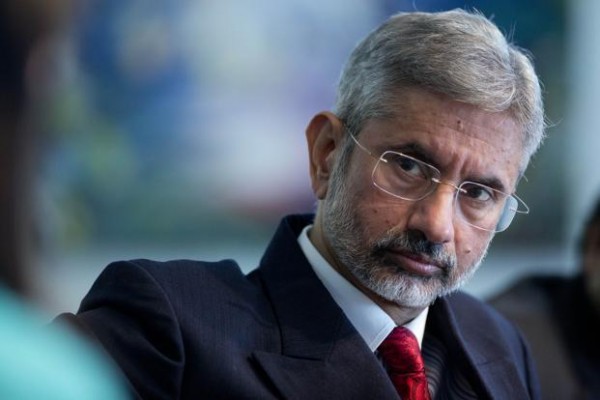NEW DELHI: India’s neighbourhood stretches beyond the Straits of Malacca in the east and the Gulf of Aden in the west and the Indo-Pacific concept overcomes artificial faultlines imposed in the post-World War II era, foreign minister S Jaishankar said on Wednesday. The minister’s formulation expands India’s intended sphere of influence into the South China Sea as a theatre of Indian foreign policy.
In a trilateral discussion with French foreign minister Jean-Yves Le Drian and Australian foreign minister Marise Payne at the Raisina Dialogue, Jaishankar described India’s new view of its role as a “return to history”, saying that this placed the country’s neighbourhood across a greater swathe of the globe.
Interestingly, Jaishankar’s remarks signal a desire to break out of India’s own definition of its ‘strategic backyard’ or extended neighbourhood that former PM Atal Bihari Vajpayee had articulated back in 2000 — of stretching between the Straits of Malacca and the Gulf of Aden. The formulation, though presented in terms of historical connections, is unlikely to please China, which not only sees its immediate neighbourhood, but the entire Asia-Pacific as its strategic zone. Jaishankar added that global multilateral regimes were not delivering, security alliances did not always work and bilateral relationships were falling short — in other words, the present system of global governance may have outlived its usefulness.
What he left unsaid was that the rise of China, India and other powers as well as the relative decline of the West had placed strains on the multilateral system, and it was important to rewrite it to reflect current realities.
The world, he said, was moving to plurilaterals or mini laterals — smaller groups coming together with shared interests, shared goals and natural complementarities in their structures — like the Quad. “Multilateralism has fallen short. And bilateral delivery is not what it used to be. World moving towards multipolarity, rebalancing and plurilateralism. Shared values and comforts are creating new combinations. Will not fall for mind games,” he tweeted.
The three ministers were actually supposed to hold an in-person trilateral dialogue on the sidelines of Raisina but that was postponed because the conclave went virtual in the light of India’s steep Covid-19 surge. While France is not a member of the Quad, the India-France-Australia trilateral is an extension of the Quad, given that France is a big player in the Indo-Pacific, as a resident power, with territories in its control.
Answering a question on the importance of Indo-Pacific, Jaishankar said it was a historical reality, in a more seamless world, as evidenced by the old trading routes that stretched from the western Pacific to the Mediterranean. “Indo-Pacific is a strong message. India will not be boxed between Malacca Strait and the Gulf of Aden. Our interests and activities go way beyond. Australia and France are part of that canvas. It’s a return to history,” he said.
“What broke this were empires and the politics of post-World War II. Today, because of rebalancing and multipolarity, they are all coming back together,” he added.
Emphasising the centrality of Asean in the Indo-Pacific, Jaishankar pushed back against the Chinese accusation of the Quad as an Asian Nato. In the past few meetings, he said, Quad discussions focused on climate, HADR, vaccines, resilient supply chains, emerging technologies and maritime security.
Source: TNN
You may also like
-
IAF Aircraft Set Course For Exercise Eastern Bridge VII At Oman
-
India-us Working Together In Areas Like Critical Minerals, Supply Chains And Advanced Technologies: Shri Piyush Goyal
-
Defence Secretary to co-chair 5th India-Philippines Joint Defence Cooperation Committee meeting in Manila
-
2nd India-Japan Finance Dialogue held in Tokyo on 6th September, 2024
-
Prime Minister, Shri Narendra Modi welcomes Crown Prince of Abu Dhabi
